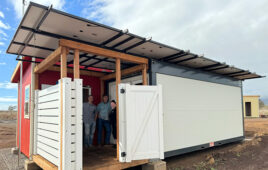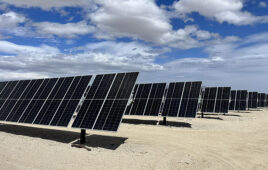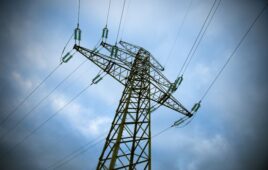Visa announced the company has met its goal to use 100% renewable electricity by 2020, furthering the company’s commitment to lead responsibly and sustainably across the company’s global operations, including 131 offices in 76 countries and four global processing centers.
Since setting the 100% renewable goal in 2018, Visa achieved quick action across its global facilities portfolio by advancing to a sustainable mix of renewable energy sources such as solar and wind.
“At Visa, we see both a responsibility and an opportunity to make broad shifts toward a sustainable and inclusive future,” said Al Kelly, CEO of Visa Inc. “I’m proud of the investments we’ve made in our infrastructure to reach this important renewable energy milestone. We will continue to prioritize advancing the role of our business and industry in transitioning to a cleaner global economy.”
Working with local utilities and competitive electricity market providers, Visa leveraged renewable electricity options available in each market that best fit the country’s approach to renewable electricity. Visa made local renewable electricity investments in markets where the company has major facilities, including four locations in the U.S. and the U.K. that account for 80% of its global electricity use. Specific actions by Visa included enrollments in renewable electricity programs offered by Total Energy in the U.K., Xcel Energy in Colorado, Austin Energy in Texas and Peninsula Clean Energy in the San Francisco Bay Area.
With a commitment to support the broader renewable electricity transition, Visa also joined and followed the guidelines of RE100, a global collaborative of influential businesses committed to 100% renewable power led by The Climate Group in partnership with CDP; became a member of the Renewable Energy Buyers Alliance (REBA); and signed the Renewable Energy Buyers’ Principles.
By purchasing 100% renewable electricity, Visa mitigates the greenhouse gas emissions from the electricity the company consumes (Scope 2 emissions), reducing its operational emissions from its facilities and data centers by almost 90% versus the company’s 2014 baseline.
“We congratulate Visa on their exciting announcement that they have reached 100% renewable electricity — it shows that it is possible for companies to switch to clean energy at speed,” said Amy Davidsen, executive director – North America, The Climate Group. “What’s also really impressive is that Visa worked with other key stakeholders to increase renewable electricity capacity in the areas they operate. Leadership action like this helps accelerate market change and reduces greenhouse gas emissions.”
Visa will continue its commitment to foster a more sustainable future inside its operations and in the broader ecosystem of commerce. Within its operations, Visa locations around the world have implemented energy efficiency measures to meet this commitment, including a commitment to LEED-based building design and operations, lighting and HVAC upgrades, and an efficient electronics policy that mandates at least 90% of new electronics in its largest corporate campus offices meet either ENERGY STAR or EPEAT certification standards.
“With the world’s growing focus on the global challenges of climate change, we recognize and understand the need to play a leadership role in helping build a more sustainable future,” said Douglas Sabo, VP and head of corporate responsibility and sustainability at Visa Inc. “For Visa, this achievement shows how we are dedicated to being a force for good and leading the way in sustainable business practices.”
News item from Visa





Tell Us What You Think!